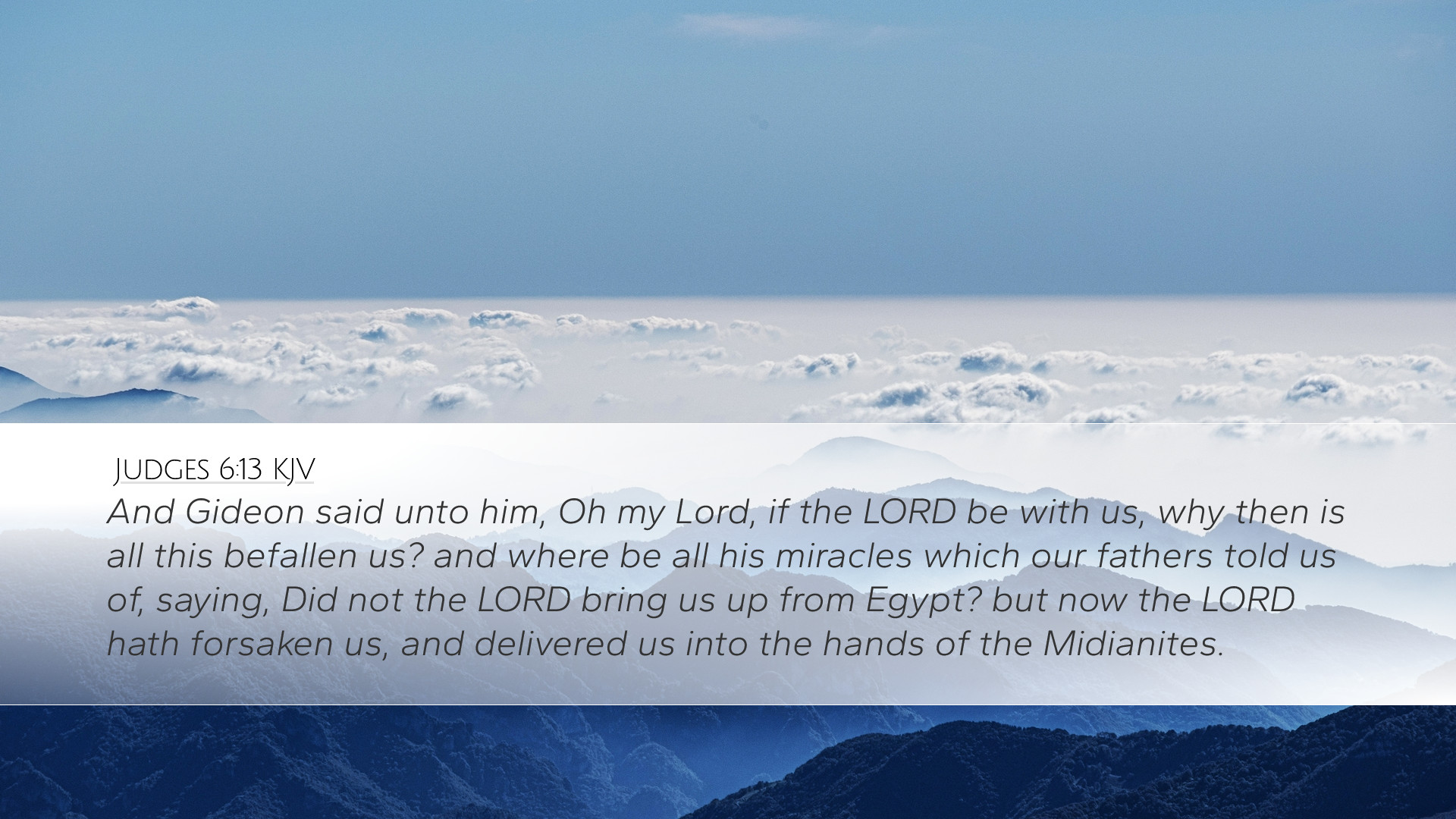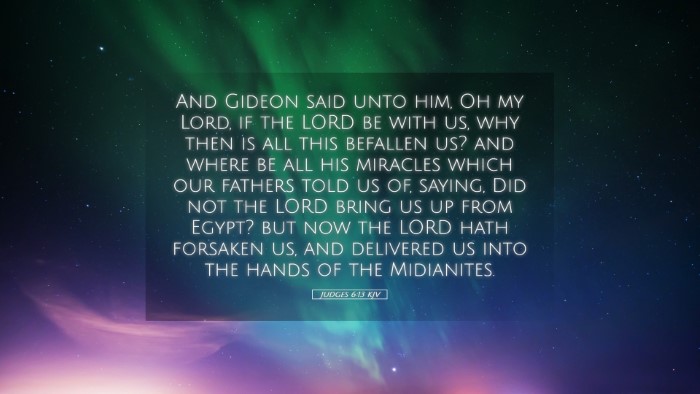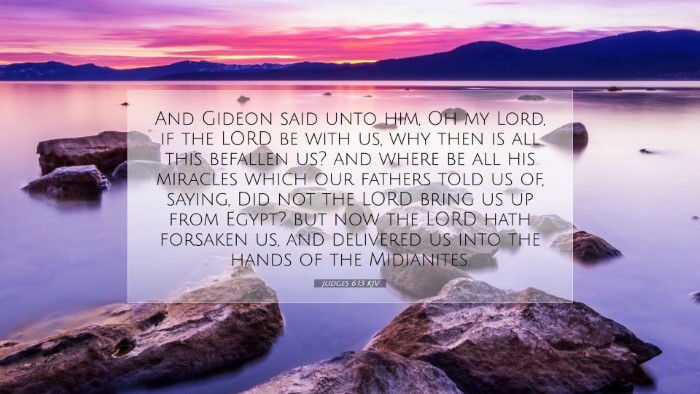Commentary on Judges 6:13
Verse: "And Gideon said unto him, Oh my Lord, if the Lord be with us, why then is all this befallen us? and where be all his miracles which our fathers told us of, saying, Did not the Lord bring us up from Egypt? but now the Lord hath forsaken us, and delivered us into the hands of the Midianites." (Judges 6:13)
This verse captures a pivotal moment in the narrative of Gideon and reflects deep theological themes relevant to the faith journey, human suffering, and divine promises. Gideon’s questions are not mere expressions of doubt; they reveal a profound struggle with the faithfulness of God amidst troubling circumstances.
Contextual Background
The Book of Judges describes a period of Israel's history marked by cycles of sin, oppression, repentance, and deliverance. The Israelites, after settling in the Promised Land, frequently turned away from God, resulting in oppression by neighboring nations, in this case, the Midianites. Gideon's call to leadership arises during a time of significant national despair, making his questions all the more poignant.
Commentary Insights
1. Gideon's Doubts and Despair
Matthew Henry writes that Gideon’s inquiry reflects a common human response when faced with suffering. He articulates a sense of abandonment: “If the Lord is with us, why do we face such calamity?” This question resonates with anyone who has grappled with the silence of God amid trials. It highlights a timeless struggle between understanding God's presence and the reality of suffering.
2. Theological Reflection on God’s Presence
Albert Barnes emphasizes the covenant relationship of God with Israel. He points out that Gideon’s lamentation reflects theological confusion: the disconnect between God’s promises and the people's experiences. This verse invites readers to consider God’s providence, even when circumstances seem adversarial. It serves as a reminder that the presence of God might not always manifest in favorable conditions, yet God is present and active in the narrative of human suffering.
3. Memory of Miracles and Historical Faithfulness
Adam Clarke observes the significance of memory in faith. Gideon’s reference to historical miracles, particularly the Exodus, demonstrates a longing for the tangible acts of divine intervention. Clarke suggests that it is vital for believers to remember past acts of God’s faithfulness as a foundation for future trust. The importance of recounting God’s past workings is a powerful tool for nurturing current faith, especially in turbulent times.
4. A Cry for Deliverance
Henry also notes that Gideon's lament is a form of prayer, a cry for deliverance. This highlights the role of lament in the faith community, presenting an authentic posture when confronting systemic injustice and personal suffering. Gideon's honest questioning does not indicate a lack of faith but rather a desire for God’s intervention and recognition of current vulnerabilities.
5. God’s Response to Doubts
In the wider context of the chapter, it’s vital to note that God’s response to Gideon is not a dismissal of his doubts. Instead, God acknowledges Gideon’s fears and directs him toward action, demonstrating that questioning can lead to transformation. This interaction reminds readers that doubts can be a pathway to deeper faith and relationship with God, rather than a barrier.
Applications for Today
- Addressing Doubts: How can church leaders and pastors create environments where doubts can be expressed safely without judgment?
- Recollection of God's Faithfulness: What practices can congregations implement to regularly recount the miracles and faithfulness of God, akin to Gideon’s reflection?
- Finding God in Adversity: What theological frameworks can support believers in recognizing God’s presence during personal and communal crises?
- Lament as Worship: How can the church incorporate lament into its worship practices, acknowledging both pain and the hope of deliverance?
Conclusion
Judges 6:13 serves as both a challenge and encouragement to believers. Gideon’s questions are emblematic of a deeper struggle within the human soul — the quest for understanding amidst suffering and the search for the presence of a seemingly absent God. It underscores the necessity for transparency in faith, remembrance of God’s historical deeds, and the active engagement with doubts. The narrative of Gideon ultimately leads to a powerful testament of faith, action, and deliverance, reminding us of the power in confronting our struggles with God anew.


